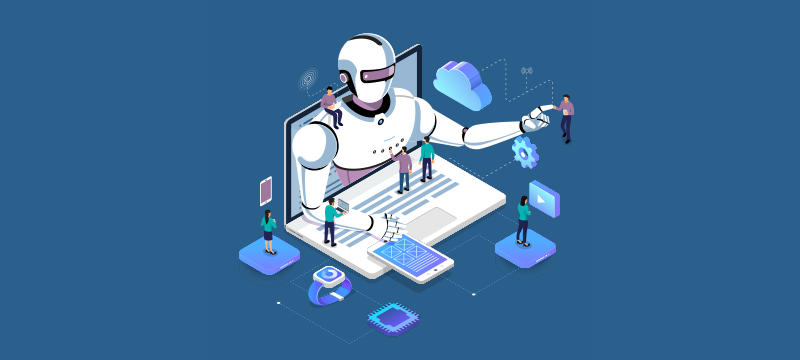As artificial intelligence (AI) evolves, it is predicted to impact all areas of business operations and this has led to a surge in enterprise adoptions as businesses strive to take advantage of what it can offer. AI’s ability to take raw data and use it to personalise customer experiences, automate business processes, make real-time decisions and predict market movements have made it a much-wanted technology. According to Gartner’s Emerging Technology Product Leaders Survey, 2021, nearly nine out of ten senior executives expect investment in AI to increase during 2022, with average enterprise budgets of over $0.6m, a figure only surpassed by investment in cloud and the Internet of Things. Here, we examine six ways that cloud-based AI can benefit enterprises.
1. Personalised CX
One of the big attractions AI has for customers is its ability to provide them with personalised customer experiences. For enterprises, this not only helps acquire new customers; it’s key to retaining them as well. Indeed, at a time when people are increasingly reluctant to give personal data, personalisation is so valued by consumers that many will provide information just to have experiences tailored to their needs and preferences.
Cloud-based AI is vital for enterprises wanting to deliver personalisation as it swiftly identifies a customer’s needs or desires. In banking, for example, it can sift through customer journey data to ensure robo-advisors give the tailored assistance customers need when choosing the right financial products. In eCommerce, it can identify patterns in a customer’s browsing and purchase behaviour, and link this to market and other data to display the products that the customers are most likely to be looking for and want to buy.
2. Real-time support
In the digital world, everyone expects interactions to take place in real-time. For enterprises with a large customer base, responding to customer communications can be operationally and financially challenging. AI helps overcome this problem. Able to sift quickly through the data that customers want to know and provide answers in real-time, it reduces the need for expensive, round the clock human response teams. Furthermore, its ability to carry out natural language processing and communicate via a range of channels, including voice assistants, chatbots, SMS, email, etc., means customers get human-like responses sent via the channel of their preference – all of which improve the customer experience.
3. Empowering automation
Automation has become critical in order to improve operational efficiency and many enterprises are using AI to bring this into place. Artificial intelligence can automate a growing number of processes, including communications, robotic manufacturing, holiday booking, customer service and even medical diagnosis. It streamlines workloads, reduces the burden on human resources, prevents breakdowns and downtime and in some instances can carry out self-repair. And it can help workloads be done quicker and far more accurately.
4. Critical insights
When cloud technology combines with AI, enterprises have the infrastructure and tools in place to analyse vast quantities of data. This includes unstructured data which, on average, accounts for about 80% of all data enterprises store. Without AI, none of this unstructured data could be mined for insights and leveraged for business intelligence. AI, therefore, delivers the potential to uncover previously undetectable patterns in data and reveal new opportunities to take businesses forward.
5. Decision making
Business decisions are increasingly data-driven and AI’s chief role in this is not merely to search data for patterns but to use this information to predict changes so that more accurate decision making can take place. A key example of this is in the monitoring of machine health, where AI can help predict when critical machinery is going to fail. Rather than suffering a failure and experiencing unexpected downtime, enterprises will be able to take pre-emptive action to remedy the situation before a disaster happens.
AI is used to make decisions across all sectors. In finance, it predicts changes in stock and commodity prices, in marketing it can help target customer groups for specific campaigns, and in healthcare, as we have all seen during the pandemic, it can provide models that show how different social distancing measures can limit the spread of viruses.
6. Predicting behavioural change
Spotting changes in consumer behaviour quickly can be vital to a company’s success. With cloud-based AI, enterprises can discover the signals that a change is beginning to take place and model how this will pan out in future. This can help predict which products to sell and at what prices and let businesses know if new products or services have been received positively or not. Understanding these movements and discovering them early enables enterprises to take preventative measures to deal with potential issues or react swiftly to market changes.
Conclusion
Cloud-based AI can benefit enterprises across many of its operations and in a growing number of ways. It offers customer and market intelligence, accurate decision-making, process automation and much more. At the same time, it helps streamline processes, reduces the need for human resources and protects against unexpected downtime. As a result, enterprises cut costs, work more effectively, bring products quicker to market and become more competitive.
For more information visit Hyperslice.com.

